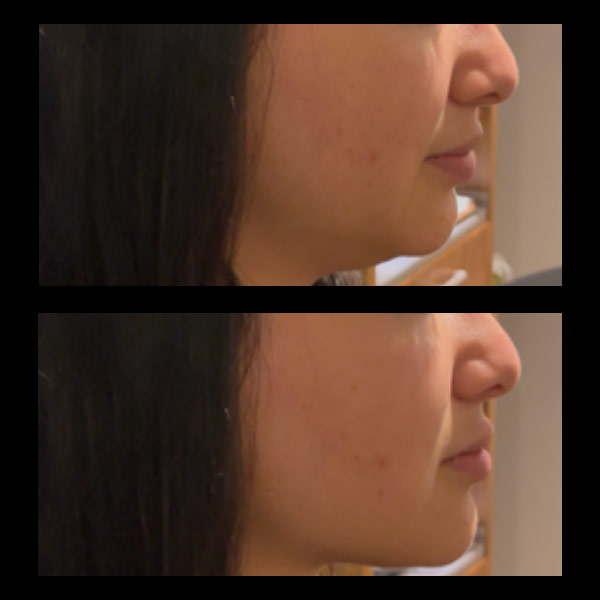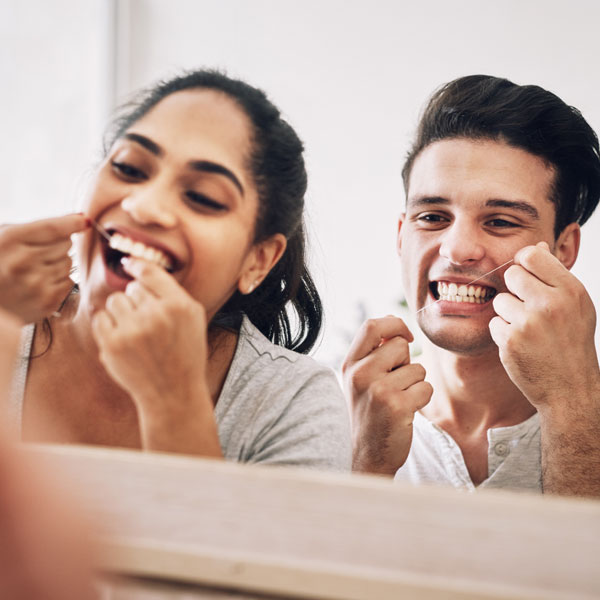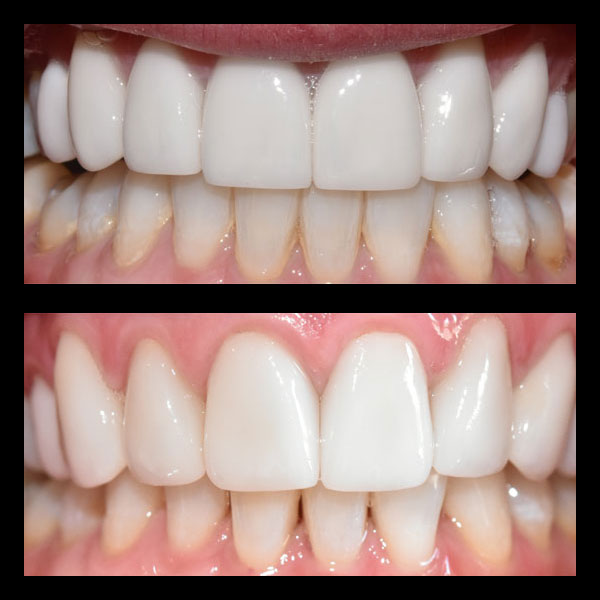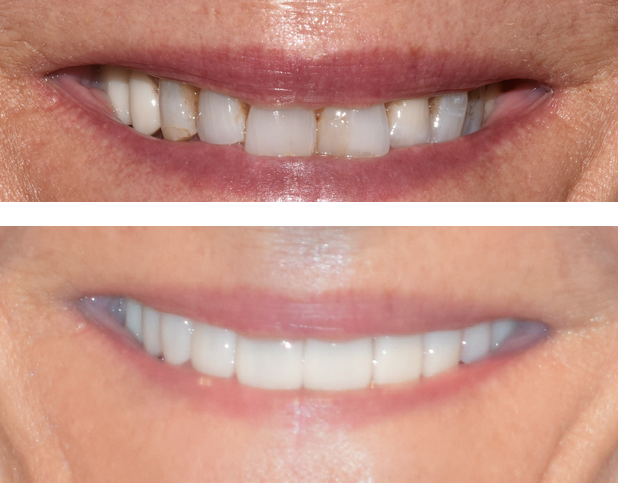Achieve a Flawless Smile with Advanced Esthetic Bonding in Boulder
Cosmetic dental bonding is a versatile and minimally invasive procedure designed to enhance your smile by repairing imperfections like chips, cracks, discoloration, and gaps. At Incredible Smiles in Boulder, we utilize the latest innovations in esthetic bonding to provide seamless, natural-looking results that restore both the beauty and function of your teeth. This technique involves applying a tooth-colored composite resin to the affected teeth, which is then meticulously sculpted and polished to blend perfectly with your natural smile. If you’re looking for a quick, effective, and affordable way to improve your smile, cosmetic bonding might be the ideal solution for you.
Understanding Cosmetic Bonding: The Basics
Dental bonding is a popular cosmetic dentistry procedure that uses a durable, tooth-colored resin material. This resin is applied directly to the tooth surface, where it can be shaped and molded to correct various dental flaws. Unlike more invasive procedures like dental veneers, bonding typically requires minimal to no removal of tooth enamel, making it a conservative approach to smile enhancement. The material bonds to the tooth, and a special light is used to harden the resin, ensuring a strong and lasting restoration. The results are immediate, often achieved in a single visit.
The versatility of cosmetic bonding makes it suitable for a wide range of esthetic concerns. It can effectively:
- Repair chipped or cracked teeth.
- Close unsightly gaps or spaces between teeth.
- Improve the appearance of discolored or stained teeth.
- Change the shape or length of teeth for a more symmetrical smile.
- Protect exposed tooth roots due to gum recession.
Our team at Incredible Smiles excels in the artistic application of dental bonding, ensuring that your repaired teeth look and feel completely natural.
The Latest Advancements in Cosmetic Bonding Materials and Techniques
The field of cosmetic dentistry is continually evolving, and bonding techniques are no exception. Recent advancements have significantly improved the materials and methods used, leading to even more durable, esthetic, and predictable outcomes.
Improved Composite Resins
Modern composite resins are stronger, more resistant to staining, and offer a wider range of shades and translucencies than ever before. This allows dentists to create restorations that perfectly mimic the natural luster and color variations of your own teeth. Nanotechnology has played a role in enhancing the physical properties of these resins, leading to improved polishability and wear resistance.
Advanced Bonding Agents
The success of dental bonding heavily relies on the strength of the bond between the resin and the tooth structure. Newer generations of bonding agents provide a more reliable and durable adhesion, reducing the chances of de-bonding or microleakage. This leads to longer-lasting restorations and better protection for the underlying tooth.
Digital Smile Design and 3D Technology
Technologies like Digital Smile Design (DSD) and 3D imaging are revolutionizing how cosmetic dental procedures are planned and executed. While not always directly part of the bonding application itself, these tools help in visualizing the desired outcome and planning the precise placement and shaping of the bonding material. This can lead to more predictable and aesthetically pleasing results, ensuring the bonding complements your overall facial features.
Laser-Assisted Bonding
In some cases, lasers can be used to prepare the tooth surface for bonding or to help cure the resin material. Laser-assisted techniques can enhance precision, potentially reduce discomfort, and improve the bond strength.
Benefits of Choosing Cosmetic Bonding
Cosmetic bonding offers numerous advantages for patients seeking to improve their smile:
- Minimally Invasive: Typically requires little to no removal of tooth enamel, preserving your natural tooth structure.
- Cost-Effective: Generally less expensive than other cosmetic treatments like porcelain veneers.
- Quick Procedure: Often completed in a single dental visit, providing immediate results.
- Painless: Most bonding procedures do not require anesthesia.
- Versatile: Addresses a wide array of cosmetic dental issues.
- Natural Appearance: Modern materials allow for excellent color matching and a seamless blend with your natural teeth.
- Reversible (in many cases): Because minimal tooth alteration is involved, bonding can sometimes be removed or replaced if needed.
Caring for Your Bonded Teeth
To ensure the longevity of your cosmetic bonding and keep your smile looking its best, proper aftercare is essential. Here are some tips:
- Maintain Good Oral Hygiene: Brush at least twice a day and floss daily to prevent staining and decay.
- Avoid Staining Foods and Drinks: For the first 48 hours after the procedure, and in general, try to limit consumption of coffee, tea, red wine, and other staining substances. If you do consume them, rinse your mouth with water afterward.
- Don’t Smoke: Tobacco can quickly stain the bonding material.
- Avoid Hard or Sticky Foods: Chewing on ice, hard candies, or using your teeth as tools can chip or damage the bonding.
- Wear a Night Guard if You Grind Your Teeth: If you suffer from bruxism (teeth grinding), a custom night guard can protect your bonded teeth.
- Regular Dental Check-ups: Visit Incredible Smiles for regular cleanings and examinations to ensure your bonding and overall oral health are in top condition.
Cosmetic Bonding vs. Veneers: Making the Right Choice
While both cosmetic bonding and porcelain veneers enhance smiles, they differ in material, procedure, longevity, and cost. Bonding is excellent for minor corrections, is less invasive, and more affordable upfront. Veneers are thin shells of porcelain custom-made to cover the front surface of teeth, ideal for more significant cosmetic changes and offer greater durability and stain resistance. During your consultation at Incredible Smiles, we’ll discuss your aesthetic goals, examine your teeth, and help you decide which option, be it cosmetic bonding or perhaps veneers, is best suited for your unique needs and desired outcome. You can explore some of our transformative results in our before & after gallery.
| Feature | Cosmetic Bonding | Porcelain Veneers |
|---|---|---|
| Material | Composite Resin | Porcelain |
| Invasiveness | Minimally invasive; little to no enamel removal | Requires some enamel removal |
| Treatment Time | Typically one visit | Typically two or more visits |
| Durability | Good, but can chip; may last 5-10 years | Very durable; can last 10-15 years or more |
| Stain Resistance | More prone to staining over time | Highly stain-resistant |
| Cost | More affordable upfront | Higher upfront cost |
| Best For | Minor chips, gaps, discoloration; tooth reshaping | Significant discoloration, misshapen teeth, multiple imperfections, smile makeovers |
Esthetic Bonding at Incredible Smiles in Boulder, CO
At Incredible Smiles, located in the heart of Boulder, Colorado, Dr. Priya Uppal and Dr. Lori Kemmet are dedicated to providing exceptional cosmetic dentistry in a comfortable, spa-like environment. We understand that every smile is unique, and we tailor our esthetic bonding procedures to meet your individual needs and aesthetic desires. Our advanced technology, including 3D imaging, combined with our artistic expertise, allows us to achieve seamless and natural-looking repairs that enhance your smile’s beauty and your confidence. We believe in a patient-centered approach, ensuring you are informed and comfortable throughout your treatment journey.
If you’re in Boulder or surrounding areas and considering cosmetic bonding or other cosmetic dentistry services to perfect your smile, we invite you to experience the Incredible Smiles difference. We proudly serve the Boulder community, helping patients achieve smiles they’re proud to show off.
Ready to Transform Your Smile?
Discover how innovative cosmetic bonding techniques can seamlessly repair and enhance your teeth. Contact Incredible Smiles in Boulder today for a personalized consultation!
Frequently Asked Questions (FAQ)
How long does cosmetic bonding last?
With proper care and maintenance, cosmetic bonding can last from 5 to 10 years, or even longer. The lifespan can be affected by your oral habits and the location of the bonding.
Is the cosmetic bonding procedure painful?
No, cosmetic bonding is generally a painless procedure and usually does not require anesthesia, especially since minimal to no tooth structure is removed.
Will my bonded teeth look natural?
Yes. The composite resin used in bonding is carefully selected to match the shade of your natural teeth. Our dentists are skilled in sculpting the resin to create a seamless, natural-looking result.
Can bonded teeth be whitened?
The bonding material itself does not respond to teeth whitening treatments in the same way natural teeth do. If you plan to whiten your teeth, it’s best to do so before the bonding procedure so the resin can be matched to your lighter tooth shade. For significant color changes, veneers might be a better option.
How much does cosmetic bonding cost in Boulder?
The cost of cosmetic bonding can vary depending on the number of teeth being treated and the complexity of the case. Generally, it ranges from $300 to $600 per tooth. We recommend scheduling a free consultation to get a personalized estimate. Many dental insurance plans may cover a portion of the cost if the bonding is for restorative purposes. You can learn more about dental insurance on our website.
Glossary of Terms
- Composite Resin: A tooth-colored plastic and glass mixture used for dental fillings and bonding.
- Esthetic Bonding: A cosmetic dental procedure that applies a tooth-colored resin material to teeth to improve their appearance. Often used interchangeably with cosmetic bonding.
- Minimally Invasive: Dental procedures that conserve healthy tooth structure, involving little to no removal of tooth material.
- Dental Veneers: Thin, custom-made shells of tooth-colored materials (like porcelain) designed to cover the front surface of teeth to improve appearance.
- Bruxism: A condition characterized by the grinding or clenching of teeth, often during sleep.
- Nanotechnology: The manipulation of matter on an atomic, molecular, and supramolecular scale. In dentistry, it’s used to create materials with enhanced properties.








